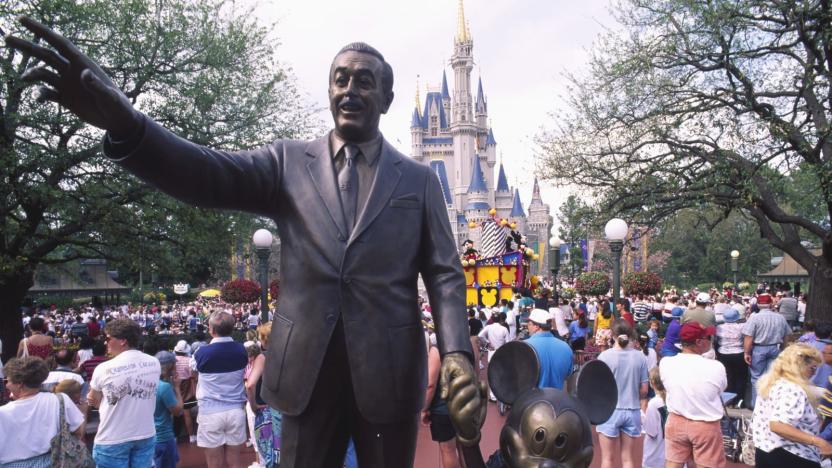OxfordUniversityPress
Latest

Hitting the Books: Disney's influence on America's first stealth planes
Welcome to Hitting the Books. With less than one in five Americans reading just for fun these days, we've done the hard work for you by scouring the internet for the most interesting, thought provoking books on science and technology we can find and delivering an easily digestible nugget of their stories.

Oxford University's smart glasses help people with partial vision see more detail
When we hear the term "smart glasses" these days, we tend to focus more on the smart and less on the glasses. Researchers at Oxford University see things the other way around: putting the emphasis on glasses suggests a device that helps the visually impaired see the world, not augment it. This is the project Dr. Stephen Hicks of the Nullfield Department of Clinical Neurosciences at the University of Oxford has been working on: a wearable designed to give folks with partial vision a clearer view of their surroundings. It's not as flashy as Google Glass, but it has the potential to change lives. It's also being tested in the wild.

This smiley face is either a perfectly fitting typo or the world's first emoticon
It turns out that the emoticon might be a bit older than we originally thought. Literary critic Levi Stahl has found what could possibly be the first instance of a ":)" in Robert Herrick's 1648 poem "To Fortune." Stahl checked to see if it was just a typo in the edition of Hesperides that he owns, and says that he found the smiley intact in the authoritative two-volume edition of Herrick's work published last year by the Oxford University Press. Stahl explains that the poet's work was rife with humor, so this likely isn't a "punctuational oddity." If true, it'd beat the previous record-holder's age -- a transcription of an 1862 speech by Abe Lincoln -- by some 200 years. That isn't quite the final word, however. The New Atlantis (a scholarly journal about tech and society) writes that this probably isn't the case, and the only real way to tell if the emoticon was Herrick's intent would be to look up very early editions or his original manuscripts. The 19th century version it found didn't have the parentheses, however, and thus it ruled that the smiley was likely the result of a modern editor's insertion :( [Image credit: Robert Herrick]

Google Wallet reaches the web, reminds most of us that it exists
Unless you happen to be using the right phone on the right carrier, you might not know that Google Wallet is even a reality: the close association with NFC-based mobile payments on one network has largely kept it out of the public eye. Many more are about to see Wallet in action now that Google has quietly introduced it to the web. No, you won't tap your phone against your computer screen; the web version is mostly targeted at microtransactions and gives readers more than a few ways to buy without getting burned, such as long and blurred-out previews, a narrow price range between 25 to 99 cents and an Instant Refund option that gives no-questions-asked credit within half an hour. Only Oxford University Press as well as Pearson's DK and Peachpit publishing wings are known to be testing Wallet at this stage, but Google is already soliciting new partners for the e-commerce service before the customary blog post is active -- a sign that Mountain View is eager to get Wallet on the web rolling a little faster than its slow-moving mobile counterpart.

Next edition of Oxford English Dictionary may be online-only
Video killed the radio star and the internet, it seems, is about to obviate printed reference tomes. Oxford University Press, the publisher of the 20-volume authoritative text on the English language, has said it might not publish a printed version of the next edition. The OUP cites 2 million monthly hits on its subscription-based ($295 per annum) web lookup service, which compares rather favorably to the 30,000 total print sales since the current (Second) edition's publication back in 1989. The complete Oxford English Dictionary hardback set costs $1,165 and weighs in at a whopping 130 pounds altogether, so perhaps Oxford would be doing Ma Earth a favor as well by going paperless. Of course, we're talking about the somewhat distant future here; the next OED isn't expected to be completed for another decade, by which time we could have all sorts of magical devices, maybe even a color Kindle!



